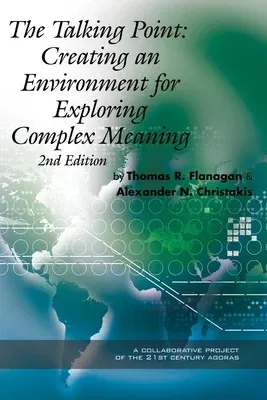The Talking Point is all about how people learn within groups. People
can be much smarter than crowds if you measure "smart" as
decision-making speed. Crowds can be much wiser than individuals if you
measure wisdom by depth of understanding. It is possible to understand a
great deal of information yet (or maybe because of this) you can also be
slow to make decisions. If rushed, crowds will make poor decisions in
spite of their wisdom. So... to get good group decisions on a time scale
that will keep pace with policy development needs and social
necessities, groups have to be supported so that their decision-making
process can be accelerated. Much has been said and written about this
problem over the years. It is dangerous to have the power of groups
without the wisdom of groups, and it is tragic to have the wisdom of
groups without the power of groups. The Talking Point presents a
meeting point for the wisdom and power of groups through the use of
Structured Dialogic Design. With hopeful intentions, as a culture we
have poisoned the well just when we need it most. We have touted design
charettes and stakeholder processes as engagement vehicles and then
ignored, marginalized or corrupted the very input that we swore to hold
as sacred. This has created a myth that large scale collaboration is not
possible, and the myth has led to considerable disillusionment among
would-be participants and could-be sponsors. Structured Dialogic Design
seeks to bust the myth about our limited capabilities to sustain
boundary spanning collaboration. To bust this myth, Structured Dialogic
Design needs to usher in a new wave of collaborative planning. Scholars
have identified the Structured Dialogic Design methodology as the
cutting edge of "third phase" science - where the reality of a situation
embraces interactions between objective findings and subjective
intentions. The Talking Point provides a window for observing how
Structured Dialogic Design has been put into practice and paints a
panorama of the issues that confront complex social system design. This
book is itself a bridge between scholarship and practice, written to be
accessible yet anchored to major themes in cognitive psychology,
information systems, social systems, and models of group learning. The
book is an invitation for transformational leaders and those who support
transformational leaders to pick up a new tool in the essential quest to
put our nation and our world back on track toward sustainable futures.
The Talking Point is a fresh source of water in a world that is
thirsty for new ways of solving complex problems.


